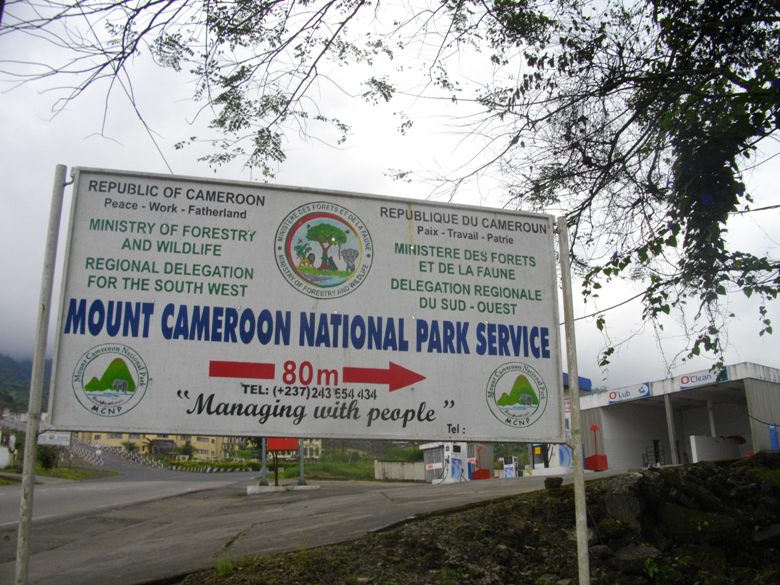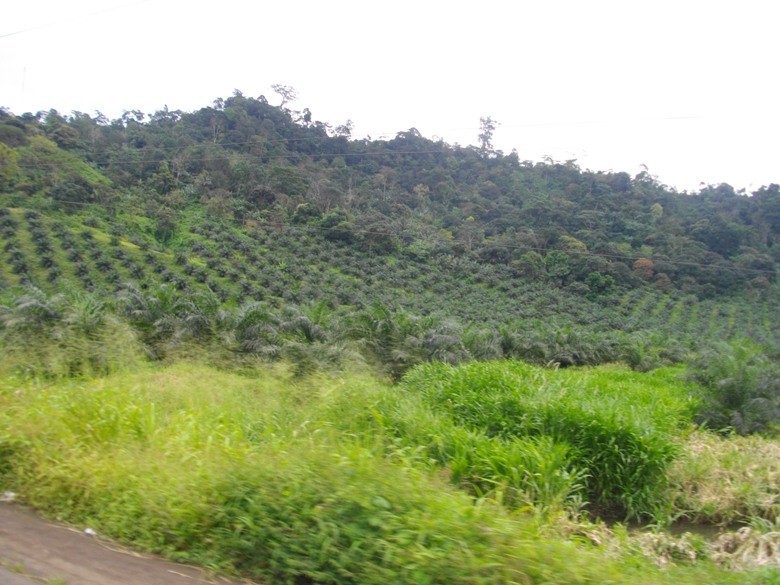
By Elias Ntungwe Ngalame
In an innovative push to combat illegal logging and the corruption that enables it, forest community volunteers in Cameroon are being trained to use smartphones to take geo-tagged images of freshly cut stumps and relay the information to the authorities.
Under a partnership between the government and environmental groups, young people are using satellite-linked phones to document tree-cutting in areas where logging is not allowed.
They can then upload the photos and make toll-free calls to report the suspicious activity, not just to the police and forest ministry, but also to the National Anti-Corruption Commission, said Bangya Dieudonne, a forestry and wildlife official in Kadey, in the country’s East Region.
“Getting these three institutions informed makes it difficult for forest exploitation criminals to bribe their way through,” he said.
The same training has also been done in other forest areas like Bonadikombo-Limbe in the Southwest region. The chief of Bonadikombo says the project has strengthened the clout of the community in protecting their forest.
“The training and empowerment has made our community more conscious on the need to protect our forest,” says Chief Esombe David Nanyowe of Bonadikombo Village.
Training frontline forest defenders aims to reduce illegal deforestation, which is depriving the government of billions of CFA francs in income, hurting communities that make their living from the forest, and making the country more vulnerable to the effects of climate change, officials said.
With corruption affecting forest management, new and stronger measures are needed, government officials say.
According to Eben Ebai Samuel, South West regional delegate in the ministry of forestry and wild life, strengthening forest governance is a prerequisite for the REDD+ process (reducing emissions from deforestation and forest degradation) and carbon sequestration.
“To strengthen forest governance, we have to directly involve the local communities,” Eben Ebai said.
So far, more than 300 youths have been trained as community “forest defenders” in the Southwest, East and other areas where logging has been especially prevalent, officials said.
The training has been organised in collaboration with FODER (Forest and Rural Development), a Cameroonian group that works with communities to monitor forest activities, combat corruption and improve governance of forests. The Rainforest Foundation UK is also supporting the project.
Rodrique Ngozo, FODER’s chief of programmes, said the forest defenders would act as whistle-blowers under the legal protection of the government.
Such work can be risky, however. Global Witness, an international human rights organisation, documented 185 killings of people defending their forests, land or rivers across 16 countries in 2015, the highest annual death toll on record.
Eric Tah of Cameroon wildlife law enforcement organisation LAGA, which works with the government, described the forest defenders’ work as “a tough job”. “You must be committed to do it and the government is aware of the dangers involved,” he said.
Security has been beefed up by deploying elite soldiers in forested areas to support forest guards and community defenders in their efforts to stop illegal operators, he added.
‘In their own best interest’
Despite the danger, involving communities in reporting illegal logging can be an effective way to curb it, not least because most people living in or near forests depend on them and have a strong interest in their protection, experts say.
“The forest people are the most vulnerable to the effects of forest exploitation and climate change,” said Manfred Epanda, Cameroon coordinator for the African Wildlife Foundation.
“They depend on these forest resources for their livelihood and so, when involved in the control of their own resources, they do so in the best interest of their community and the future of their children.”
Volunteers say they are expected to pass on what they have learned to others in their communities.
“We have been trained not only to monitor illegal and corrupt activities in our forest but also to train others to better fight illegal logging,” said Bertrand Eyoum, one of the new forest observers in Kadey.
The training has given local people a better understanding of the importance of their forest resources and the need to fight corruption, he added.
A report by the Congo Basin Forest Partnership says corruption is “promoting illegality in the sector with serious consequences for the environment, local communities and the state’s budgetary revenues”.
Timber is Cameroon’s second most important export commodity after crude oil, according to government statistics. In past decades, logging has accelerated, attracting Chinese, Lebanese, French and other foreign companies.
The presence of many timber firms, combined with a failure to apply forestry laws, has fueled a surge in illegal activities, experts say. Training volunteers is seen as a good step, but much more needs to be done to curb illegal deforestation, they argue.
“The government needs to streamline its forest governance reforms by putting an end to impunity,” said Richard Eba’a Atyi of CIFOR, an international forest research organisation.
Anicet Ngomin, the forest and wildlife ministry’s head of monitoring for reforestation, said the government was assessing the gravity of the illegal logging problem and seeking ways to get communities involved in protection efforts, particularly since the signing of the Paris Agreement on climate change.
“Empowered people, capable of taking action and contributing to the protection of their forest resources, will certainly help in the fight against forest resource depletion,” Ngomin said.
Logging suspensions
In October last year, the government reinstated payments of 10 percent of annual forestry royalties to local communities. Those payments had been suspended in 2014 after a new tax regime allocated the money to councils instead.
Officials say progress is being made in cracking down on illegal logging. Last November, the government suspended the concessions of 23 logging companies and two community interest groups working on forest issues for six months.
The government said they were guilty of unauthorised logging, fraudulent use of documents, and failure to comply with contractual obligations and technical operating standards.
Earlier in 2016, Cameroon also suspended the licences of four logging companies, issued 35 other companies with warning notices and generated 54.2 million CFA francs ($88,139) in fines related to illegal forest activities.
“These suspensions are the latest in the government’s growing efforts to tackle illegality and reinforce governance in the forest sector,” said Philip Ngole Ngwese, Cameroon’s minister of forestry and wildlife, at September’s observance of International Anti-Corruption Day in Yaounde.
(This article has been produced under the aegis of the CSE Media Fellowship Programme)












